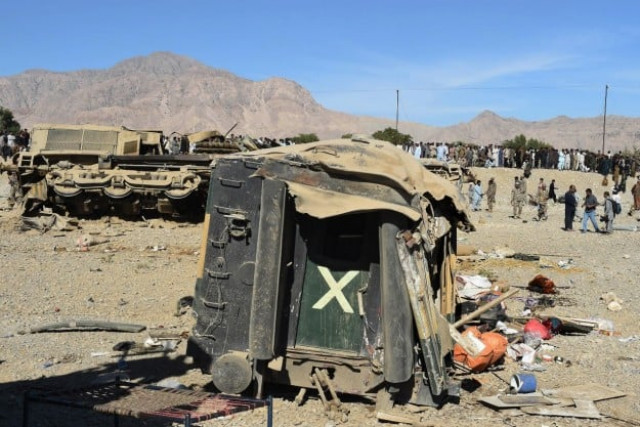Death by rail
Death came on tracks once again on Nov 17 as a train carrying 281 people hurtled off track in Balochistan

PHOTO: AFP
Balochistan Chief Minister Dr Abdul Malik Baloch, who also reached the site of the disaster, has asked the minister of railways to carry out a full inquiry into the causes of the accident. So far, we have only conjecture. Local officials say there was brake failure and the driver failed to pull into a side rail as is the prescribed practice in such circumstances. There are also accounts stating the driver was over-speeding. Passengers who survived say the train was hurtling down the tracks with its whistle blowing constantly at the time of the crash when the bogies overturned sending passengers flying out of their seats. With the driver among those killed, only a full investigation can determine precisely what happened and how such a tragedy can be avoided in the future.
Pakistan’s record, as far as rail safety goes, is not comforting. An extensive network of rail tracks, largely a legacy of colonial times, snakes its way across the country reaching even the most remote of areas. But we have failed to maintain this system well. The tracks are in disrepair in many places, railway engines have been allowed to break down and accidents are not uncommon. In July this year, 18 people died when a bridge in Gujranwala collapsed as a train passed over it. Millions of Pakistanis who rely on trains as a means of transport regularly put their lives at risk. The railway ministry needs to take urgent steps to ensure that railway journeys become safer and passengers do not fall victim to avoidable negligence.
Published in The Express Tribune, November 19th, 2015.
Like Opinion & Editorial on Facebook, follow @ETOpEd on Twitter to receive all updates on all our daily pieces.















COMMENTS
Comments are moderated and generally will be posted if they are on-topic and not abusive.
For more information, please see our Comments FAQ